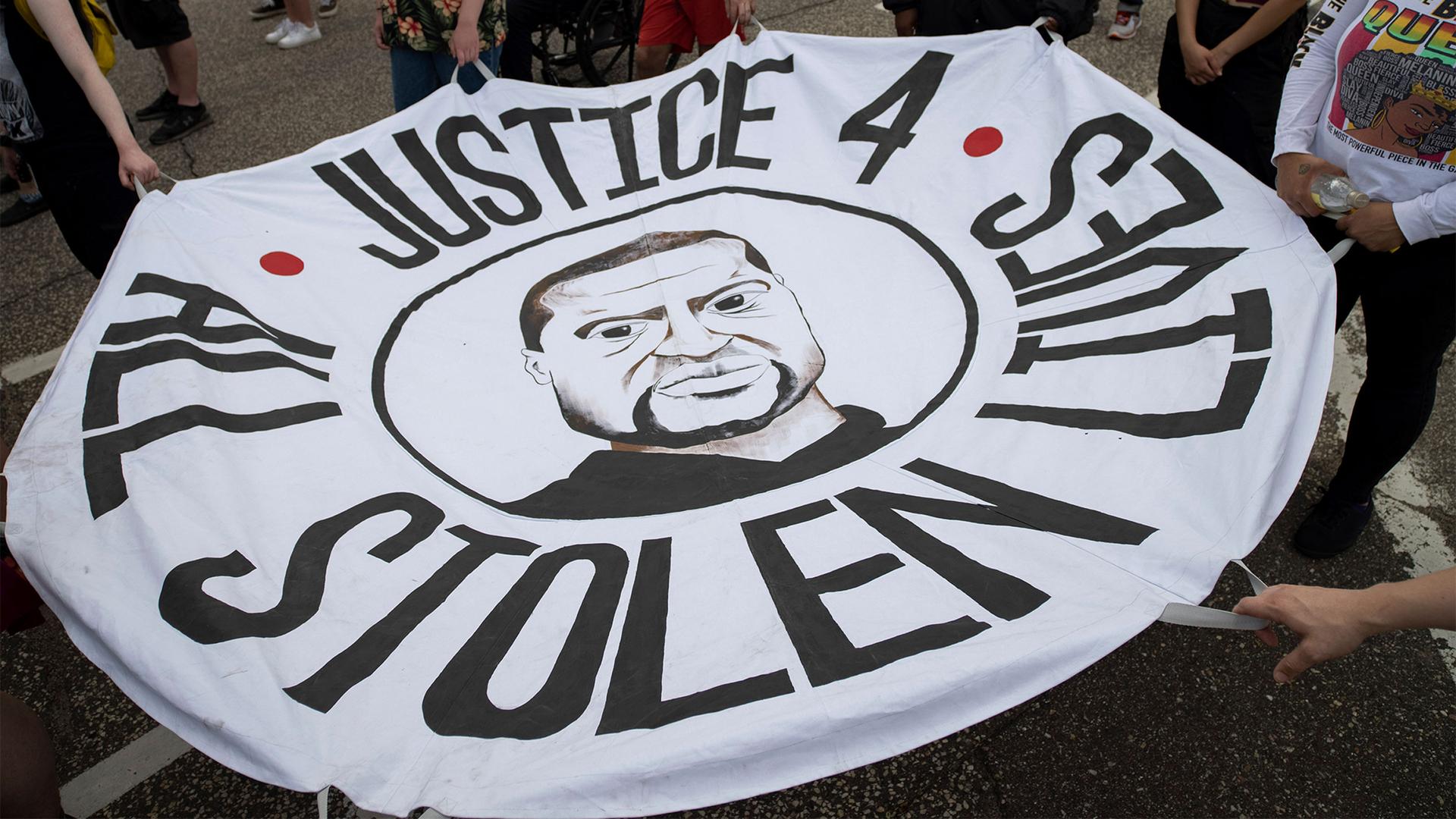Just days after Derek Chauvin was sentenced to 22 years in prison for George Floyd’s death, United Nations High Commissioner for Human Rights Michelle Bachelet has released a long-awaited report on police brutality and race, sparked by the murder.
It calls Floyd’s death “a seminal point in the fight against racism” that led to a “long-delayed reckoning.” The report branches out to cover race and police brutality around the globe. The UN Human Rights Council is set to discuss the report on July 12.
“I’m calling on all states to stop denying and start dismantling racism, to end impunity and build trust, to listen to the voices of people of African descent, and to confront past legacies and deliver redress,” Bachelet said in a video statement released on Monday.
Bachelet’s team of investigators examined more than 190 deaths involving police brutality. Most of them took place in the US followed by Latin America, Europe and other parts of the world. The team found that communities of African descent are more impoverished, get less education and have fewer opportunities.
At a press conference, Mona Rishmawi, the High Commissioner’s chief of the Rule of Law, Equality and Non-Discrimination Branch, said Blackness is often associated with criminality.
“We realized that the main part of the problem is that many people believe the misconception that the abolition of slavery, the end of the trans-Atlantic trade and colonialism, have removed the racially discriminatory structures built by these policies. We found that this is not true.”
“We realized that the main part of the problem is that many people believe the misconception that the abolition of slavery, the end of the trans-Atlantic trade and colonialism, have removed the racially discriminatory structures built by these policies,” she said. “We found that this is not true.”
Related: Report: Police treatment of African Americans in the US amounts to crimes against humanity
As a result, the report says that Black communities face disproportionate and unusual policing and use of force. Police-related deaths occur most frequently during responses to minor offenses, in mental health crises and in drug- or gang-related operations. Protests about police brutality are met with a militarized response, and activists are subject to surveillance. The report calls on the UN Human Rights Council to set up a mechanism to monitor police brutality.
The team found that the main issues that should be addressed are a lack of independent oversight and a lack of data — for example, few countries break down police-related deaths by race.
Peggy Hicks, a director in the UN Human Rights office, said they had only found one case in which an officer was convicted for a death — Floyd’s killing was captured on video.
Related: ‘Our phones are our only weapon’: French citizens demand police reform to address racism
“[George Floyd’s death] is a case where some steps have been taken, but (it highlights) how much more work there is to be done.”
“But of course, there are so many cases where there isn’t a videotape. And there have been cases where there are videotapes, and justice is not being dealt in those cases,” she said. “This is a case where some steps have been taken, but [it highlights] how much more work there is to be done.”
Bachelet’s team was tasked with producing the report following a request made last year by a group of African countries. After Floyd’s death, they asked for an independent commission to investigate police brutality in the US. At the time, the Trump administration had pulled the US out of the UN Human Rights Council, but it still lobbied its allies on the council to expand the investigation to a global one to take the spotlight off the US.
The move outraged many human rights experts. An international group came together to hold a commission of inquiry of their own. That group released its report in April and came to many of the same conclusions as Bachelet’s team. Today, many of the organizers behind the independent commission, among others, hailed Bachelet’s report as historic and groundbreaking.
Related: A year after George Floyd’s murder, New Zealand reckons with its own police reform
“We welcome this monumental report and urge the administration and Congress to heed the recommendations…”
“We welcome this monumental report and urge the administration and Congress to heed the recommendations, and take bold action to eliminate systemic racism in the United States, starting with our policing institutions,” said Jamil Dakwar, who leads the ACLU’s Human Rights Program. “The United States’ global leadership on human rights and racial justice must start at home. Without tackling the root causes of systemic racism, slavery and Jim Crow segregation, it will continue to be seen as disingenuous and hypocritical.”
In an email, a US State Department spokesman said the United States is committed to treating every person with dignity and upholding human rights.
“We recognize that our country has not always lived up to these ideals, particularly for African Americans and other people of color,” the spokesman said, adding that Secretary of State Antony Blinken had called on the UN Human Rights Council to put “fighting racism at the top of the global human rights agenda.”
